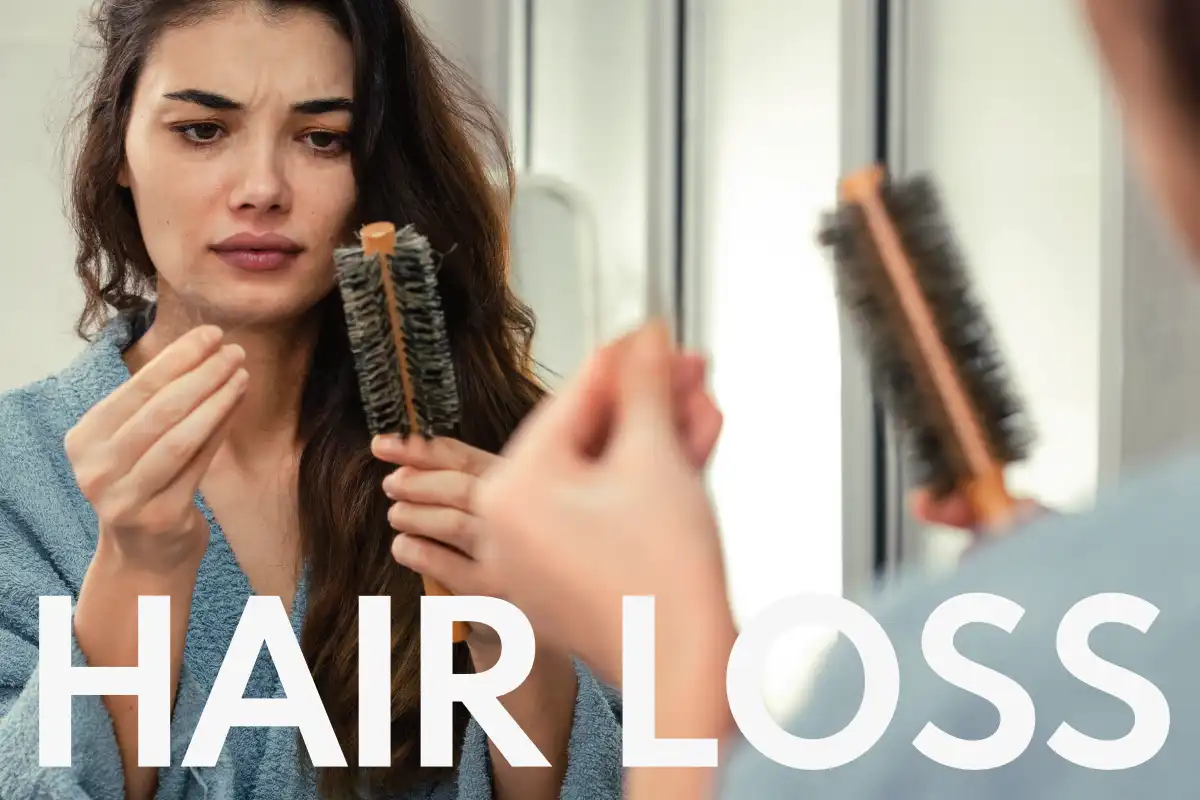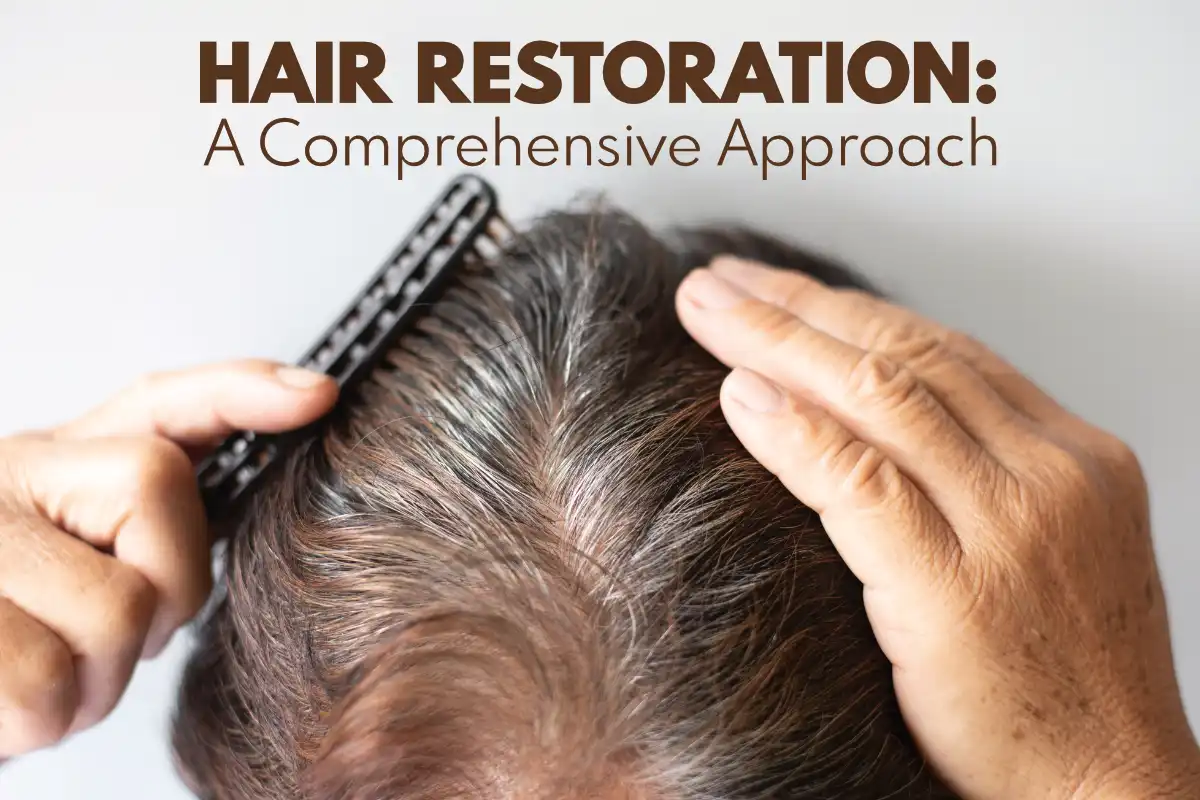
Hair loss is one of the most common conditions that dermatologists diagnose and treat, and one that can take a huge emotional toll. There are many different kinds of hair loss, some that self-resolve, and some that require treatment. For conditions that require treatment, early intervention is key.
What are symptoms of hair loss?
Hair loss may at first be slow and subtle, presenting as increased shedding, decreased scalp coverage, a receding hairline or sparse hairs at the hairline, a widening part and a thinner ponytail. Hair loss can also be sudden, with a bald patch or strip appearing over just 1-2 days, or even most or all of the hair on your head falling out. Some types of hair loss can be accompanied by other symptoms such as pain, itching, burning, flaking and redness of the scalp. Hair loss may affect other areas of the body besides the scalp, including eyebrows and eyelashes or body hair. The cause of your hair loss will determine whether the hair falls out abruptly or gradually, whether it will regrow on its own, whether it requires treatment, or whether immediate treatment is needed to prevent permanent hair loss. A dermatologist can help determine the cause of the hair thinning and recommend an appropriate treatment plan.
Causes of hair loss:
Hair loss can be temporary and caused by normal conditions such as pregnancy and childbirth, weight loss, illness, and stressful life events. A variety of medical conditions can also cause hair loss, such as autoimmune disorders, rashes, and infections. Hair loss can also be genetic. Some types of hair loss can be reversed, and some cause permanent loss if not caught and treated early, called scarring hair loss.
Hereditary hair loss is the most common type of hair loss worldwide and affects men and women equally though at different average ages of onset. Whether in men or women, this type of hair loss is called androgenic alopecia. It means that you've inherited genes that cause the hair follicles to shrink and eventually stop making hair.
Treatment for this condition can slow or stop hair loss and may even help regrow hair. The earlier treatment is started the more effective it is. Without treatment this type of hair loss is progressive, and if effective treatment is discontinued the hair loss will recur.
Alopecia areata is a type of hair loss that occurs when the immune system attacks the hair follicles, causing the hairs to fall out. The hair loss can affect a portion of the scalp, the whole scalp, or anywhere on the body. The hair typically regrows on its own, but treatment may be needed to stimulate regrowth.
Pregnancy, childbirth, illness, and stressful life events may cause hair loss, starting a few months after the event and continuing for several months then gradually resolving. Typically, this type of hair loss presents as increased shedding, sometimes dramatic amounts. It resolves on its own and does not require treatment, but there are treatments that can support and speed regrowth.
Other common causes of hair loss include infections, too tight hair styles or damaging hair treatments, hormonal imbalance such as polycystic ovarian syndrome, certain medications, nutrient deficiencies, sexually transmitted infections such as syphilis, and systemic medical conditions such as lupus or thyroid disease
Hair loss is a complex medical condition that has a wide variety of causes. The key to effective treatment is to find out what is causing the hair loss. Work with a dermatologist to diagnose and treat your hair loss.
Wishing you good skin health,
Paula D Zook, MD
Board Certified Dermatologist
Owner and Medical Director
Spectrum Dermatology of Seattle, PLLC











